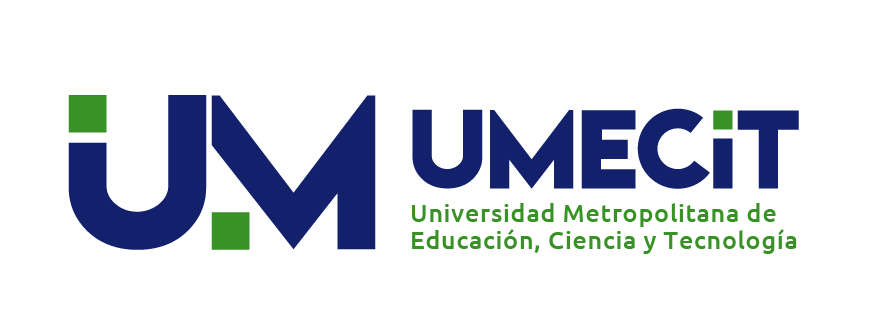IN FORENSIC LABORATORIES: “FORENSIC LAB INNOVATION”
The Forensic Laboratory Seedbed, known as "Forensic Lab Innovation," is established as a space for research and practical application dedicated to the study of the techniques and methodologies used in forensic laboratories for the analysis of criminal evidence. In a context where forensic science plays a crucial role in solving crimes and administering justice, this seedbed is presented as a place to deepen knowledge and develop skills in the field of forensic investigation.

Comprised of students interested in forensic science and criminology, the program aims to contribute to the advancement of forensic laboratory research, train future experts in the analysis of criminal evidence, and promote ethical and rigorous investigative practices in the study of criminal cases.
FORENSIC LABORATORIES “FORENSE LAB INNOVATION”
Research and Development of Forensic Techniques: The hotbed aims to investigate and develop new techniques and methodologies for the analysis of criminal evidence in forensic laboratories. Through experimentation and case study, participants will contribute to the advancement of forensic science and crime solving.
Training in Evidence Analysis: It seeks to provide theoretical and practical training in the analysis of different types of criminal evidence, including DNA analysis, ballistics, toxicology, and fingerprint and shoe analysis. Participants will develop technical and scientific skills for the interpretation of results and the presentation of expert reports.
Application of Technology in Forensic Laboratories: The hotbed will promote the use of advanced technology in forensic laboratories, such as spectroscopy, chromatography, microscopy and forensic imaging techniques. Participants will acquire knowledge about the operation and application of equipment and software specialized in the analysis of criminal evidence.
FORENSIC LABORATORIES “FORENSE LAB INNOVATION”
The Seedbed in Forensic Laboratories is based on solid conceptual and theoretical bases in the field of forensic science and criminology, which include:
1. Principles of Forensic Science:
The study of the fundamental principles of forensic science is addressed, including the chain of custody, the integrity of the evidence, and the validity of the results. Emphasis is placed on the importance of following international protocols and standards to guarantee the reliability and reproducibility of the analyses.
2. Forensic Analysis Techniques and Methods:
The analysis techniques and methods used in forensic laboratories for the identification and analysis of criminal evidence are analyzed. Specific procedures are studied for DNA analysis, chemical substance analysis, document analysis, and digital artifact analysis, among others.
3. Ethics and Responsibility in Forensic Investigation:
It reflects on the ethical and legal principles that guide forensic investigation, including impartiality in the analysis of evidence, protection of the privacy and rights of victims, and transparency in the presentation of results before judicial bodies.

THAT ARE IN EXECUTION
PROJECT TITLE | TEACHER MENTOR | CAMPUS |
Applications of Forensic Entomology in Postmortem Studies and Human Neglect in the Elderly. (Research completed.) | Alexie Brenes | Panama |
Relevance of Entomotoxicology within Forensic Sciences in Panama. | Alexie Brenes | Panama |
Molecular DNA identification techniques (focused on the forensic field) | Alexie Brenes | Panama |
Review of Forensic Entomotoxicology based on scientific evidence, its relevance, and future prospects in Panama. (Research completed). | Alexie Brenes | Panama |
Chemical toxicological analysis of water pollution in the Matasnillo River | Alexie Brenes | Panama |
Impact of climatic and environmental variables on the detection and duration of the age of a latent fingerprint | Aurelio Andrión | chitre |
Theoretical analysis of the durability and efficacy of Blue Star reagent vs. Luminol | Aurelio Andrión | chitre |
Analysis of the Role of the Third Level in Fingerprint Identification at Crime Scenes in Panama. | Sindy Masiel Ortiz | David |
Fingerprinting on cadavers: Factors affecting fingerprint recovery at different stages of processing. | Sindy Masiel Ortiz | David |
Analysis of the use of non-conventional biological matrices for drug detection in Panama. | Sindy Masiel Ortiz | David |
MENTOR TEACHERS OF THE SEEDBED:
Aurelio Andrión (Chitré Campus)
Sindy Masiel Ortiz (David Headquarters)

BASE BIBLIOGRAPHY
- Adams, L.E., & Clark, P.R. (2021). «Digital forensics: Emerging trends and challenges». Digital Investigation, 18, 102-115. DOI: 10.1016/j.diin.2021.02.006.
- Brown, K.L., & Garcia, M.S. (2019). «Recent developments in forensic toxicology: Challenges and opportunities». Journal of Analytical Toxicology, 45(3), 210-225. DOI: 10.1093/jat/fgz034.
- Harris, A.M., & Garcia, L.J. (2019). «Recent advances in forensic odontology: Techniques and applications». Forensic Science International, 14(3), 211-225. DOI: 10.1016/j.forsciint.2019.02.022.
- Martinez, EA, & Johnson, T.S. (2020). «Advances in forensic serology: Current methodologies and future directions». Forensic Science International: Genetics, 17, 88-101. DOI: 10.1016/j.fsigen.2020.102221.
- Rodriguez, A.M., & Brown, D.J. (2018). «Forensic chemistry: Principles and applications». Journal of Forensic Sciences, 67(1), 30-43. DOI: 10.1111/1556-4029.13855.
- Smith, J.M., & Johnson, A.B. (2020). «Advances in forensic DNA analysis techniques: A comprehensive review». Forensic Science International: Genetics, 14, 112-125. DOI: 10.1016/j.fsigen.2020.102571.
- Thompson, G.R., & Davis, M.C. (2019). «Applications of forensic entomology in criminal investigations». Annual Review of Entomology, 12, 45-58. DOI: 10.1146/annurev-ento-040821-105052.
- Thompson, L.A., & Martinez, G.F. (2020). «Forensic anthropology: Current methods and future trends». Journal of Forensic Research, 5(2), 88-101. DOI: 10.4172/2157-7145.1000401.
- Williams, R.H., & Martinez, C.D. (2018). «Forensic ballistics: From theory to practice». Forensic Science International, 25(4), 335-350. DOI: 10.1016/j.forsciint.2018.02.019.
- Wilson, S.P., & Harris, R.L. (2021). "Recent advancements in forensic pathology: Implications for death investigation." Forensic Science, Medicine, and Pathology, 10(3), 60-73. DOI: 10.1007/s12024-021-00379-5.

